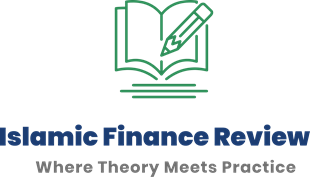
Empowering Through Faith: The Role of Islamic Microfinance in Ramadan
- Post by: wp-islamicfinancereviewcouk
- March 22, 2025
- No Comment
Role of Islamic Microfinance in Ramadan
Introduction: Uplifting Communities the Halal Way
As Muslims immerse themselves in devotion, generosity, and social reflection during Ramadan, this sacred month becomes a powerful opportunity to not only give—but to uplift. While the spiritual benefits of Zakat and Sadaqah are well known, there’s another way to multiply reward: by helping others become self-reliant through Islamic microfinance.
Rooted in the core principles of equity, justice, and compassion, Islamic microfinance supports individuals—particularly those excluded from traditional financial systems—in establishing income-generating activities through Shariah-compliant financial instruments.
What is Islamic Microfinance and Why It Matters
Islamic microfinance is a faith-based financial model designed to alleviate poverty by empowering individuals and small businesses with halal financing. Unlike conventional loans, it strictly avoids interest (riba) and promotes ethical, risk-sharing alternatives in line with Islamic law.
Key Instruments:
- Qard Hasan (benevolent loan): A zero-interest loan granted out of goodwill to those in need, with repayment based on ability. (More)
- Mudarabah (profit-sharing): A contract where one party provides capital and another manages the business. Profits are shared, and losses are borne by the investor. (IFSB Guide)
- Musharakah (partnership): Joint investment by two or more parties who share profits and losses.
- Murabaha (cost-plus): The lender purchases an item on behalf of the borrower and sells it to them at a known profit margin, avoiding interest.
These mechanisms promote justice and fairness, fostering entrepreneurship, dignity, and community well-being.
Why Islamic Microfinance Matters More in Ramadan
Ramadan is not only a month of heightened worship—it is a time when Muslims seek to deepen their impact through sustainable acts of charity.
“Who is it that will lend Allah a goodly loan so that He may multiply it for him many times over?”
(Surah Al-Baqarah 2:245)
Supporting microfinance is a form of ongoing charity (Sadaqah Jariyah)—one that fuels long-term transformation rather than temporary relief.
Ramadan-specific benefits:
- 🌙 Amplified rewards: Every good deed is multiplied many times over during Ramadan.
- 🕊️ Dignified giving: Islamic microfinance enables people to earn their own income rather than rely on aid.
- 🤝 Collective growth: It strengthens the economic fabric of the Ummah by promoting halal livelihood.
The Prophet ﷺ said:
“The upper hand is better than the lower hand. The upper hand is the one that gives, and the lower hand is the one that receives.”
(Sahih Bukhari, 1429)
Real-World Examples: Islamic Microfinance in Action
🌍 Akhuwat Foundation (Pakistan)
One of the world’s largest interest-free microfinance institutions, offering Qard Hasan to empower over 5 million families.
🔗 www.akhuwat.org.pk
🇮🇩 Baitul Maal wat Tamwil (Indonesia)
Community-led Islamic financial cooperatives providing micro-loans based on Murabaha and Musharakah.
🔗 BMT Indonesia
🌍 Islamic Relief Microfinance Programme (Global)
Offers sustainable micro-loans in conflict and disaster-affected areas with a strong ethical foundation.
🔗 Islamic Relief – Microfinance
🇳🇬 Jaiz Bank (Nigeria)
A full-fledged Islamic bank with microfinance solutions that support small-scale halal business ventures.
🔗 www.jaizbankplc.com
How You Can Participate This Ramadan
✔️ Donate your Zakat to organizations using Shariah-compliant microfinance models.
✔️ Sponsor micro-entrepreneurs through ethical lending programs.
✔️ Invest in Islamic finance portfolios that support community empowerment.
✔️ Advocate for ethical and inclusive finance in your local mosque or social platforms.
Supporting microfinance during Ramadan is not just charity—it’s investing in a legacy of halal livelihood and hope.
Conclusion: A Legacy of Empowerment
By empowering someone to earn a halal income, you are giving more than charity—you are restoring dignity, hope, and independence. Islamic microfinance, especially during the sacred month of Ramadan, reflects the essence of Islamic giving: not simply to give—but to enable.
Let this Ramadan be your opportunity to turn your giving into growth—for someone else and for your own akhirah.
